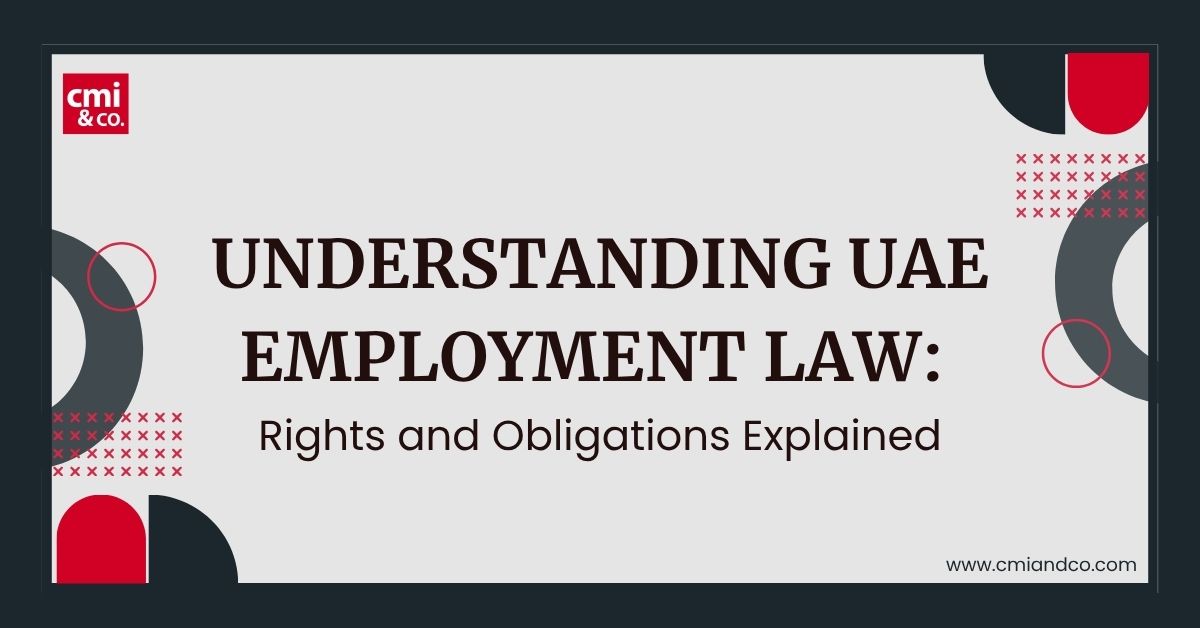UAE’s employment law goes beyond simple, it governs how workers and bosses interact and work with each other. The law, officially called The Regulation of Employment Relationship (Federal Decree No. 33 of 2021, effective from February 2022), covers private sector workers across the emirates. This marked the UAE’s most significant workplace law overhaul in decades, replacing the old framework and updating it to fit a modern economy. Majority of the employees that are a part of UAE’s workforce come from diverse backgrounds from across the world, making this law impactful in terms of how people work and build their careers across the region.
While the UAE’s federal employment law applies to most private sector workers on the mainland, not every workplace operates under the same framework. Free zones such as DIFC and ADGM have their own employment regulations, which can differ from federal law in certain aspects. This implies that it’s crucial for both the employers and employees to understand which legal system their employment contract falls under, which further determines their rights and obligations.
Employee Rights Under UAE Law
The updated UAE Employment Law which came into effect in February 2022, brought significant reforms aimed at creating a more balanced working environment. It replaced several outdated provisions from the previous framework, modernizing how employment relationships are managed and ensuring stronger protection for employees across the private sector.
The key employee rights are as follows:
- Standard Working Hours: The law sets a clear limit on regular working hours per week to prevent excessive workloads. Any hours worked beyond this limit must be compensated as overtime with fair pay. This ensures employees are protected from overwork while being fairly rewarded for their extra effort.
- Annual, Maternity, and Paternity Leave: Employees are now entitled to paid annual leave along with enhanced maternity and paternity benefits. These provisions underline the UAE’s growing emphasis on work-life balance and family well-being, allowing parents to spend quality time with their newborns without financial strain.
- Paid Sick Leave: Workers are entitled to paid sick leave, though the payment structure depends on the number of days taken, a step toward formalizing health-related absences with clarity and fairness.
- End-of-Service Gratuity: Employees who complete at least one year of service are entitled to a gratuity payment based on their basic wage and total years of service. This reform clarified calculation methods, especially important for expatriate workers who rely on this payment as a financial safety net upon leaving the UAE.
- Protection from Unfair Dismissal: The law strengthens protection against arbitrary termination, requiring valid reasons and proper notice periods. Employees dismissed unfairly now have clearer grounds to claim compensation.
- Flexible Contract Types: The law replaced indefinite contracts with fixed-term contracts, promoting greater transparency and alignment with international best practices.
Employer Obligations
Employers in the UAE are bound by specific legal duties designed to maintain fairness, transparency, and compliance in the workplace. The updated Employment Law reinforces accountability on the employer’s part, ensuring that all employment practices meet the standards set by the government and protect the welfare of workers.
The key employer obligations are as follows:
- Timely Payment of Wages: Employers must pay employees on time through the Wage Protection System (WPS). Delayed or incomplete payments can result in penalties or legal consequences.
- Legally Compliant Contracts: All employment contracts must align with the Federal Decree Law No. 33 of 2021. Any clauses that contradict the law are considered invalid and unenforceable.
- Visa and Work Permit Management: Employers are responsible for arranging and maintaining valid residency visas and work permits for their employees, a crucial obligation in a country with a large expatriate workforce.
- Workplace Health and Safety: Providing a safe and hygienic work environment is a legal requirement, not a choice. Employers must take all necessary precautions to prevent workplace injuries or hazards.
- Proper Termination Procedures: When ending an employment contract, employers must follow due process, which includes serving the notice period, paying final settlements, and issuing necessary documentation in compliance with the law.
Employment Contracts Under UAE Employment Law: What Every Worker Should Know
The 2022 reform brought major changes to how employment contracts are structured in the UAE. The shift from unlimited to fixed-term contracts ensures more clarity and uniformity in employment relationships. Understanding the terms written in a contract is crucial as these details define each party’s rights, responsibilities, and how disputes are resolved if conflicts arise.
The key contract provisions are as follows:
- Fixed-Term Contracts: All employment contracts must now be fixed-term, replacing the old unlimited contracts. Each contract must specify essential details such as job title, salary, allowances, probation period, and working hours.
- Probation Period: The probation period can last up to six months. If an employee resigns during probation, they must give advance notice, the duration of which depends on whether they are joining another employer within the UAE or moving abroad. If the employer ends the contract during probation, they too must provide notice before termination.
- Non-Compete Clauses: Some contracts include non-compete clauses that restrict employees from joining competitors after leaving. The law limits how strict these clauses can be, they must be reasonable in duration, geographic scope, and type of work.
- Importance of Reading the Contract: Many employees overlook the fine print when signing. However, understanding the terms before signing helps prevent misunderstandings related to resignation, termination, or future employment.
Dispute Resolution and Employee Protection
When disputes happen, the Ministry of Human Resources and Emiratisation (MOHRE) is usually the first authority to step in. Employees can file a complaint, and the ministry tries to mediate between the two parties. Most cases get resolved at this stage without going to court.
If no agreement is reached, the case moves forward to the labor courts. In free zones, however, employees need to go through the free zone authority first before escalating the matter. This step is important because rules in free zones can differ from those in the mainland.
Conclusion
Employment in the UAE is shaped by a federal law that applies to nearly all private sector workers. With reforms in 2022, the system has become more transparent, but also stricter in certain areas. Both workers and employers need to know what their rights and obligations are under this framework. Ignorance of the law does not protect anyone, it only creates problems later. A careful reading of contracts, awareness of the law, and timely action when disputes arise can go a long way in ensuring a fair and secure workplace in the UAE.




